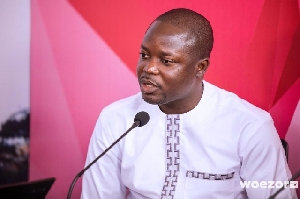Energy Analyst, Benjamin Nsiah has strongly reprimanded Energy Minister, Dr Matthew Opoku Prempeh for his dismissive remarks to concerns of a vast majority of Ghanaians on the current power sector crisis.
Over the past 24 hours, Ghanaians have heavily descended on Dr Matthew Opoku Prempeh for what has been generally described as loose” and “irresponsible” comments on the current erratic power supply known popularly in the Ghanaian setting as dumsor.
The Sector Minister who was queried about the crisis in a media interview during the inauguration of the NPP campaign team in the Ashanti Region said the current NPP government had better managed the energy sector “300 times better” than that of the erstwhile Mahama Administration. Dr. Opoku Prempeh, in a seemingly flippant response to a journalist's inquiry, suggested that those seeking a timetable should provide one themselves “Ask those who want it to bring it if there is," the Manhyia South MP told the journalists.
"I haven’t seen any timetable," he noted, adding: "The Electricity Company of Ghana says that there’s no timetable coming," so "why do you want to bring a timetable?" "For what purpose? Why would somebody wake up and wish for evil and wish bad for the country?" he indicated.
As calls for transparency and accountability regarding the management of the energy sector grow louder, Opoku Prempeh's remarks have further fueled public criticism of the government's handling of the situation.
Reacting to the statement in an interview with Class News, Energy Analyst Benjamin Nsiah was blunt. Mr Nsiah who described the comment as “sickening” saID Dr Matthew Opoku Prempeh must be “responsible enough to make sure that they find a solution for this crisis forever”.
He added that for him, the Minister must move beyond the political blame game and find pragmatic solutions to the energy sector. “It is very sad that at his time and age, people think that every challenge that Ghana faces is about politics, it is not about politics”, Mr Nsiah noted.
He further demanded more investment into the power sector to scale up infrastructure towards building a resilient sector to withstand future challenges.
Click to view details



General News of Wednesday, 27 March 2024
Source: classfmonline.com

















